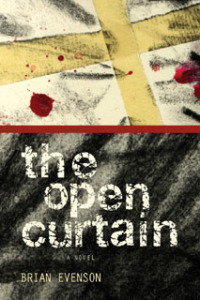Paris Trout by Pete Dexter
 Thursday, December 9, 2010 at 2:52PM
Thursday, December 9, 2010 at 2:52PM 
First published in 1988
Paris Trout runs a general store in Cottonwood Point, Georgia. He's a racist but, more than that, he's violently paranoid and increasingly obsessed with his own fingernail clippings and urine. When a young black man buys a car from him on credit, supposedly purchasing insurance with it, and gets into an accident, Trout won't repair the car and won't let him off the hook for payments, telling him he didn't buy that kind of insurance. This leads to blood, but the victims are female members of the young man's family. Trout feels entirely justified in his actions and more than a few townspeople see things his way -- after all, a man has a right to collect his debts.
The novel follows Harry Seagraves, the best lawyer in town, as he prepares Trout's defense and during the trial and its aftermath. Seagraves takes a particular (not entirely professional) interest in Trout's wife, who is rather horrifically abused by Trout. Other notable characters include a young lawyer, Carl Bonner, the youngest Eagle Scout in Cottonwood Point's history, who tries to help Trout's wife; and Bonner's wife, who is frustrated that her husband has become such a stick-in-the-mud.
The dark humor in this novel alternates with a chilling depiction of southern racism and Trout's madness, and the characters are unforgettable. This isn't a simple-minded examination of contrived racism as some of the reviews at this site might suggest. The complex relationship between Trout and the townspeople -- they don't want to be associated with racism that's quite so overt, yet they don't want to upset such a wealthy and powerful (not to mention violent) citizen -- is deftly portrayed. Except for the clearly innocent victims, nobody gets off easily as Dexter examines the town's dynamic. This is a chilling and powerful work by a careful, evocative writer.
HIGHLY RECOMMENDED
 TChris |
TChris |  Post a Comment |
Post a Comment |  HR,
HR,  Pete Dexter,
Pete Dexter,  award in
award in  General Fiction
General Fiction 